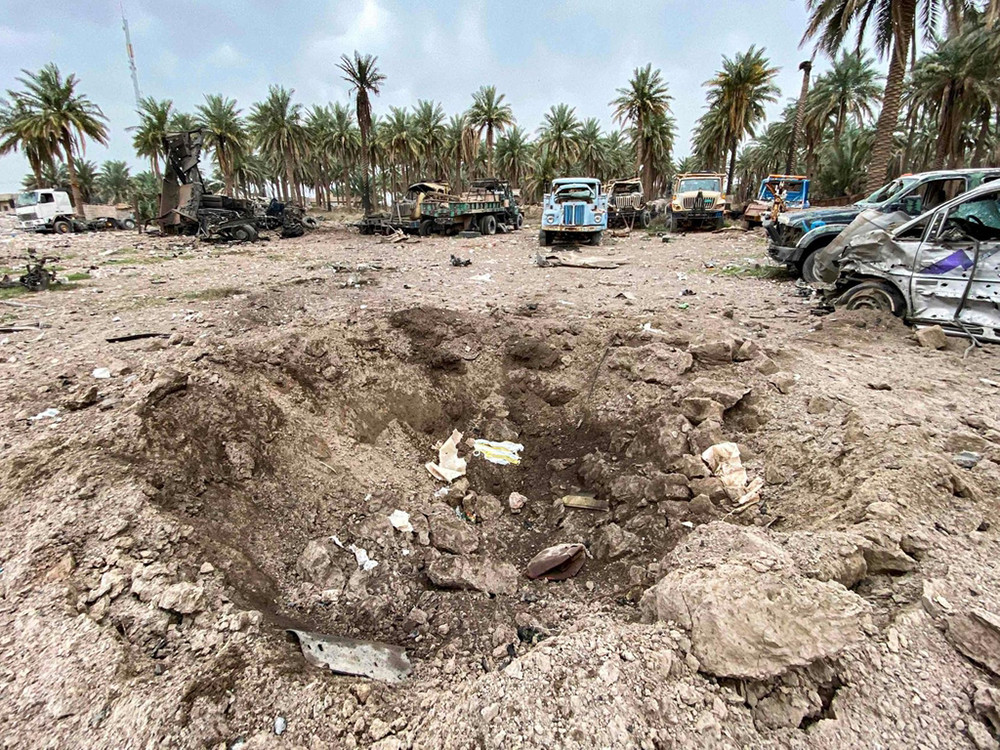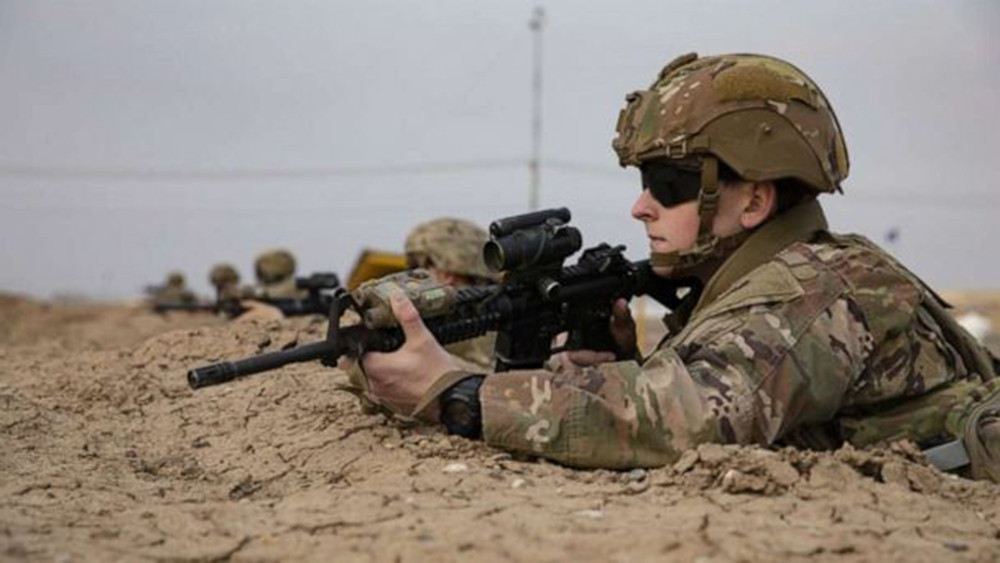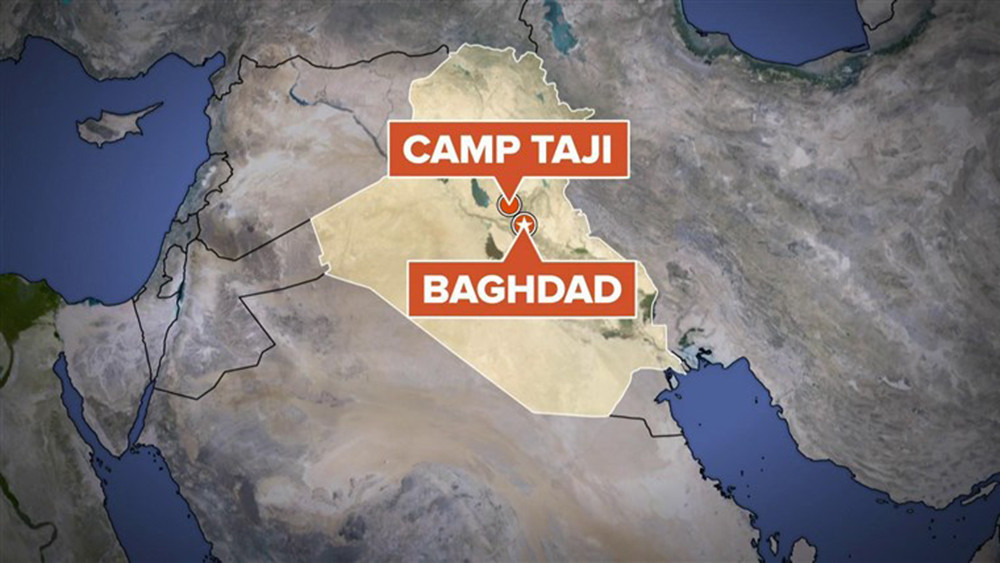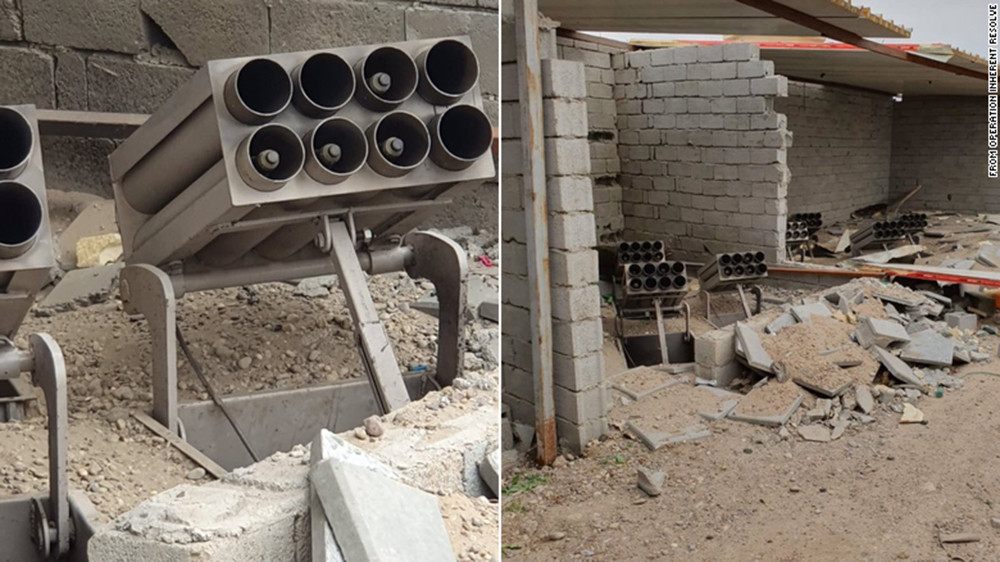Fierce bombardment continues: US - Iran turn Iraq into a battlefield
(Baonghean) - Despite the increasingly serious Covid-19 epidemic in both the US and Iran, the governments of both sides have continuously warned, criticized and made moves to increase tensions in recent days.
In just a few days, shelling attacks on foreign coalition military bases - including US troops stationed in Iraq - have occurred continuously, Washington accused Iran-backed forces of carrying out the attacks. In response, the US also carried out a surprise airstrike targeting important military positions of the Iran-backed Kataib Hezbollah force in Iraq. Not only has Iraq become an involuntary battlefield, this race is also causing turmoil in the entire Middle East region.
The grudge is hard to forget
The Taji military base north of the Iraqi capital Baghdad was targeted by dozens of rockets on March 14, just three days after US and British soldiers were killed in a similar attack on the same military facility. According to regional observers, the shelling of the Taji base took place on the 63rd birthday of Iranian General Qasem Soleimani, who was killed in a US airstrike in January. Although no group has claimed responsibility for the attacks, Washington has blamed armed factions in Iraq that it believes are backed by Iran. And it seems that Shiite armed groups in Iraq have always been quietly seeking revenge for what the US government has done.
 |
| Images after the US military airstrike on the morning of March 13 in the Jurf Al Sakhr area of Babylon province, Iraq. Photo: AFP |
Of course, it could not be silent, US President Donald Trump had previously given the green light for US retaliatory airstrikes in the early morning of March 13. In a statement released the same day, the Pentagon said that the missiles had hit weapons depots belonging to the Iranian-backed Kataib Hezbollah force in Iraq. At least five weapons depots were destroyed in the airstrikes, and that these weapons depots were often used against US and allied military forces in Iraq. The statement also emphasized that this was an action to "defend against the threat from Iranian-backed Shiite militias".
In response, Iran immediately warned the US about its dangerous actions and said that the US cannot blame other countries for the consequences of its illegal presence in Iraq. Meanwhile, the Iraqi government also warned that the US will have to face serious consequences for its actions violating sovereignty as well as attacking Iraqi military forces. Iraqi President Barham Salih has also repeatedly emphasized that US attacks could make Iraq an unstable country as well as revive Islamic insurgent groups.
 |
| US forces at Taji military base in Iraq. Photo: US Army |
These developments are reminiscent of the time at the end of last year, when the US blamed Kataib Hezbollah for a rocket attack on a military base in Iraq in December that killed one American. The subsequent retaliation led to the US airstrike that killed Iranian General Qasem Soleimani, pushing US-Iran relations to the brink of war. Notably, on March 13, several Middle Eastern news sites, including the Jerusalem Post, reported that the US continued to kill IRGC Commander Siamand Mashhadani - who replaced General Soleimani as commander and control of pro-Iran forces in Iraq, right after the airstrikes against Iraq. However, this information has not been confirmed by Iran so far.
Attack or contain?
In response to the moves from Iran and Iraq, US Defense Secretary Mark Esper in his latest statement emphasized: "The United States will not tolerate attacks against US citizens, interests, or US allies." However, on official media, Washington seems to have chosen a less escalating solution, which is to attack Iran's weapons depots in Iraq. However, nothing can be said in advance, because so far, information about the high-ranking Iranian general has not been confirmed. No one can rule out a wave of unrest in the Islamic Republic if another general is killed by the "hands of the United States."
 |
| Taji military base for foreign soldiers, including US soldiers, in Iraq. Photo: NBC News |
At the same time, in another development, the US Central Command announced that it was deploying two aircraft carriers in the Middle East at the same time, approaching Iran. This is the first time in nearly 10 years that the US military has deployed such a powerful force to this region. Not only that, in the next few days, the Pentagon also said that it will activate the Patriot missile defense systems deployed in Iraq. For its part, the Iraqi government also firmly declared that it will shoot down US aircraft without warning. Notably, Iraq had previously proposed to buy Russian Pantsir-S air defense missile systems. If this deal is achieved soon, the Iraqi army will be fully capable of confronting the US or any force that invades the country's territory from the air. All current developments seem to be signaling that a conflict and military attack between many parties is very close!
However, at a time when it seemed like the red line was about to be reached, it should be recalled that in January, after Iran attacked in response to the US airstrike that killed General Solemani, despite many speculations about an all-out war, President Donald Trump decided not to launch a military attack on Iran. Simply put, this is clearly not the time for any war when the US presidential election is very close. Not only that, recently, both the US House of Representatives and the US Senate also passed a resolution to prevent the President from ordering a military attack on Iran without the approval of Congress. Although the President can absolutely use his veto, perhaps, more than anyone, Mr. Trump knows that this is not the time to show off his ultimate power.
 |
| Katyusha rocket launchers found in Umm al-Izam (Iraq). Photo: CNN |
Meanwhile, both the US and Iran are in turmoil to fight the Covid-19 epidemic. The US President had to declare a national emergency to focus on fighting the epidemic, while the Iranian President recently had to write a letter asking countries to ease sanctions to facilitate the response to the epidemic. Therefore, despite the threats and show of power, both the US and Iran understand that restraint is what all sides should do at this time. And of course, Iraq does not want to become a "battlefield" that has to suffer casualties in the war for influence between countries and outside forces!

